 Arsenal Attorneys: A National Firm - Offices in Virginia and California
Arsenal Attorneys: A National Firm - Offices in Virginia and California
Arsenal Attorneys: A National Firm - Offices in Virginia and California
Arsenal Attorneys: A National Firm - Offices in Virginia and California
CONTACT US TODAY
800.819.0608
Beware of Zero Tolerance for Violating DC Gun Laws
By George L. Lyon, Jr, Esq.
The District of Columbia has some of the most severe gun laws in the country. Yet, many people traveling to Washington, DC either don’t consider DC’s gun laws or worse simply believe those laws won’t be enforced against them because they are not using their guns to commit other crime. You do not want to make that mistake.
DC frequently prosecutes gun owners merely for possession of guns, gun accessories, and/or ammunition which would be legal to possess in jurisdictions located just minutes away. Let’s briefly recap DC’s gun laws. It is a misdemeanor punishable by a fine and up to a year in jail to possess a firearm that is not registered in the District of Columbia. DC Code Section 7-2502.01. An exception applies to active and retired law enforcement officers with credentials issued pursuant to the Law Enforcement Officers Safety Act (“LEOSA”).
To register a firearm in the District of Columbia one must either be a DC resident or DC business owner, or have a DC issued Licensed to Carry a Concealed Handgun. The DC License to Carry only allows a nonresident holder to register handguns. Non-residents cannot carry or register a long gun in the District. More on that later.
Not only is it an offense to possess an unregistered firearm in the District, but it is also a misdemeanor punishable by a fine and up to a year in jail to possess ammunition in the District unless one has a DC registered firearm. DC Code Section 7-2506.01. Further, DC considers ammunition to include any component of ammunition, so even a single expended shell can get you charged with this offense, which is called “possession of unregistered ammunition.” DC Code Section 7-2501.01(2).
The District of Columbia does not recognize any other jurisdiction’s carry permits or licenses. Carrying a handgun in the District without a DC issued carry license is a felony. That’s right a felony. DC Code Section 22-4505(a). If you are convicted of that felony, you will become a federally prohibited person and will no longer be able to possess firearms or ammunition anywhere in America.
Transporting a handgun in your vehicle through DC is legal as long as you comply with the Federal Firearms Owners Protection Act. That law requires that the gun be unloaded in a locked container and inaccessible to you with the ammunition stored separate. Your journey must be a continuous one going from one jurisdiction where you may possess and carry the firearm to another where you can possess and carry the firearm. Stopping in DC with a firearm in the car can get you arrested on a felony carrying charge, in which case you will spend at least one night in jail and possibly many more before your trial. Let’s be very clear about this: driving in DC with any long gunin the car can get you charged with felony carrying. DC Code Section 22-4504(a-1). The same with a handgun unless you have a DC issued License to Carry.
Lastly, possession of a firearm magazine capable of holding more than 10 rounds is also now a felony whether or not you are in possession of any gun. DC Code Section 7-2506.01(b).
DC police will not cut you a break because you are otherwise a law-abiding citizen. First, they have no way to know whether you are a criminal or intend to commit a crime. Second, DC’s policy goal is to eliminate the possession of guns entirely, and they have relaxed its guns laws only under court order in several cases. To the extent DC is able to maintain its draconian gun laws, you should assume those laws will be enforced on a zero-tolerance basis.
How do people most often run afoul of DC gun laws? There are many ways. Here are a few:
- Putting a backpack through an X-ray at a governmental building or museum with a gun or ammunition you forgot to remove.
- Getting stopped for a traffic offense and in full view of the police officers is a box of ammunition, some type of firearms accessory, or even just an empty shell casing. This will lead to a search of the vehicle where other ammunition, firearms or magazines could be found.
- Getting stopped for a traffic violation, and either granting permission to search your car or admitting to having a firearm in your possession. Admitting that you screwed up or consenting to a search will not result in the officer letting you go. It will just make it more difficult for your lawyer to argue that your 4thamendment rights were violated. It is best to advise the officer that you do not wish to answer any questions and do not consent to any searches.
If you regularly carry a firearm and have occasion to go into the District of Columbia, consider obtaining a DC License to Carry a Handgun. Although that will protect you from a handgun carry charge and an ammunition charge, it will not protect you if your vehicle contains a long gun, an unregistered handgun, or magazines capable of holding more than 10 rounds.
Arsenal Attorneys’ George Lyon is licensed to practice law in Virginia and the District of Columbia. He was one of the plaintiffs in the Palmer v. District of Columbia case that forced DC to begin issuing concealed carry licenses and in the Heller case that legalized handguns in Washington, DC. Mr. Lyon is licensed by the Metropolitan Police Department to teach the DC concealed carry course and conducts the course monthly. His next classes are scheduled for April 27-28 and May 18-19 in Arlington, Virginia. To sign up for his course, contact Mr. Lyon at gll[at]arsenalattorneys.com or at 703-291-3312.
Arsenal Attorneys is looking for persons who have obtained their DC concealed carry licenses and who would be willing to participate in a civil rights case relating to DC’s myriad of concealed carry restrictions. Contact Mr. Lyon if you have an interest in learning more.
This blog is for educational purposes only and is not intended as legal advice or to create an attorney-client relationship.
Tickets on sale for National Capital Friends of NRA Banquet
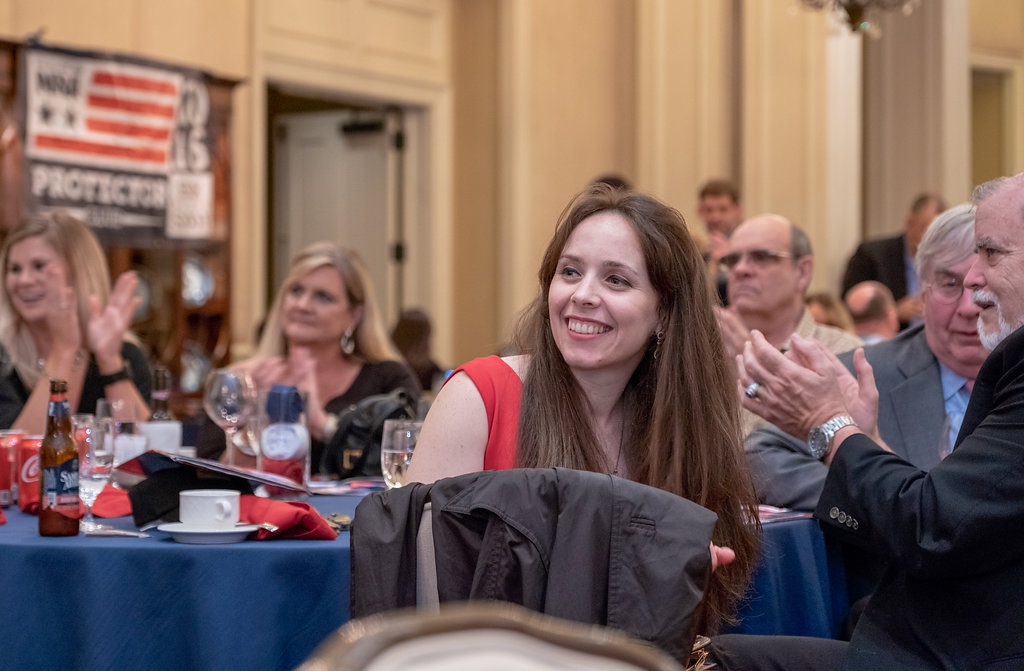 Tickets are now on sale for the fourth annual banquet of the National Capital Friends of NRA taking place on Friday, May 17, 2019 at Army Navy Country Club in Arlington, Virginia. This year's event will feature comedian Tim Young. As always, attendees will enjoy fine dining, games, auction, and camaraderie with beautiful views of the Washington Monument and US Capitol.
Tickets are now on sale for the fourth annual banquet of the National Capital Friends of NRA taking place on Friday, May 17, 2019 at Army Navy Country Club in Arlington, Virginia. This year's event will feature comedian Tim Young. As always, attendees will enjoy fine dining, games, auction, and camaraderie with beautiful views of the Washington Monument and US Capitol.
Arsenal Attorneys are proud to sponsor this award-winning event, which has sold out in its first three years. Special ticket packages are available with prizes, including firearms.
Tickets may be purchased at this link.
Survey of State Laws on NFA Firearms: Silencers in Virginia
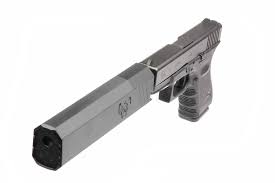 This is the latest in a series of blogs summarizing state laws concerning firearms regulated under the National Firearms Act (“NFA”). It is not intended to be a comprehensive explanation of the law, nor is it intended as legal advice. You should always consult an attorney to determine how the law applies to particular circumstances. In this installment, we review Virginia law on silencers. Follow us to learn how various states regulate silencers and other NFA firearms, such as short barrel rifles and machine guns.
This is the latest in a series of blogs summarizing state laws concerning firearms regulated under the National Firearms Act (“NFA”). It is not intended to be a comprehensive explanation of the law, nor is it intended as legal advice. You should always consult an attorney to determine how the law applies to particular circumstances. In this installment, we review Virginia law on silencers. Follow us to learn how various states regulate silencers and other NFA firearms, such as short barrel rifles and machine guns.
Silencers are legal in Virginia, and they may be used for hunting.
It is unlawful to carry publicly a loaded semi-automatic center-fire rifle or pistol designed to accommodate a silencer in the Cities of Alexandria, Chesapeake, Fairfax, Falls Church, Newport News, Norfolk, Richmond, or Virginia Beach or in the Counties of Arlington, Fairfax, Henrico, Loudoun, or Prince William; however, this restriction does not apply to a person with a concealed handgun permit or engaged in lawful hunting or lawful recreational shooting activities at an established shooting range or shooting contest. See Virginia Code Section 18.2-287.4.
 Arsenal Attorneys serve clients in the area of firearms law. The firm serves clients across America from its headquarters in the metro-Washington, DC area. The firm is particularly renowned for its Arsenal Gun Trust, a solution helping clients in the registering, handling, and estate planning of firearms, particularly those regulated under the National Firearms Act. Arsenal Attorneys' team includes lawyers licensed to practice law in nearly every state where NFA firearms are lawful to possess.
Arsenal Attorneys serve clients in the area of firearms law. The firm serves clients across America from its headquarters in the metro-Washington, DC area. The firm is particularly renowned for its Arsenal Gun Trust, a solution helping clients in the registering, handling, and estate planning of firearms, particularly those regulated under the National Firearms Act. Arsenal Attorneys' team includes lawyers licensed to practice law in nearly every state where NFA firearms are lawful to possess.
This information is provided for informational purposes only, and it is not legal advice, nor does it establish an attorney-client relationship.
How to Use eForms to Submit a Form 1 using an Arsenal Gun Trust
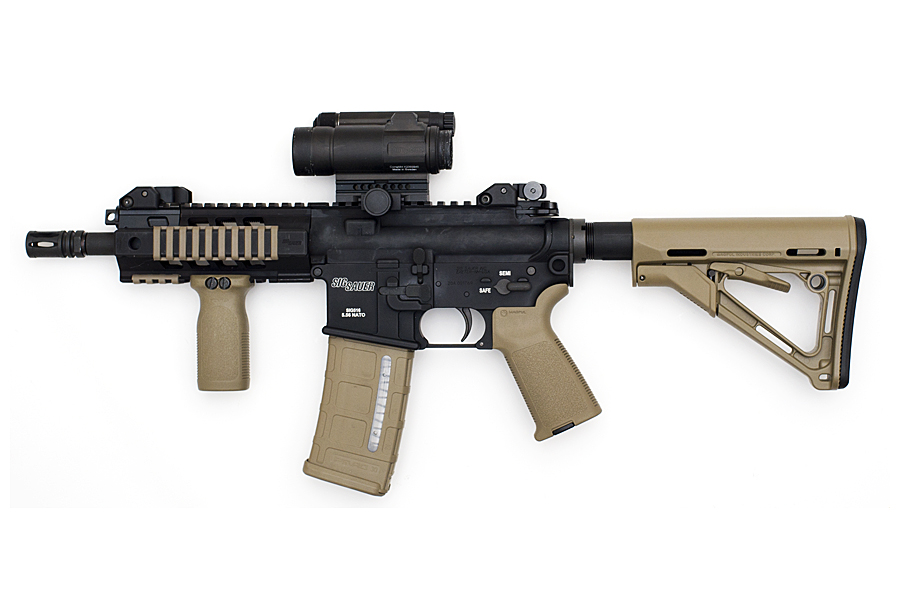 ATF recently relaunched its online system allowing the public to submit ATF Form 5320.1, also known as “Form 1 - Application to Make and Register a Firearm.” Previously, the online system, often referred to as eFile, provided extremely fast approvals. The new ‘eForm’ system already appears to be slashing the wait time for tax stamps compared to ordinary paper applications.
ATF recently relaunched its online system allowing the public to submit ATF Form 5320.1, also known as “Form 1 - Application to Make and Register a Firearm.” Previously, the online system, often referred to as eFile, provided extremely fast approvals. The new ‘eForm’ system already appears to be slashing the wait time for tax stamps compared to ordinary paper applications.
A Form 1 is submitted by an applicant wishing to make a firearm regulated under the National Firearms Act (“NFA”). NFA firearms include machine guns, silencers, short barrel shotguns, and short barrel rifles (“SBR”). The most popular NFA firearm applicants wish to make by submitting a Form 1 is an SBR. A Form 1 may not be submitted to build full auto firearms.
Under the NFA, a trust may be the registered owner or manufacturer of NFA firearms, but not for manufacturing for commercial purposes, which would require Federal Firearms License (“FFL”). A trust offers numerous benefits. Most notably, it could authorize possession of an NFA firearm by multiple people, and it could create an estate plan for the distribution of firearms outside of the probate court system.
Arsenal Attorneys™ have served thousands of clients nationwide using our proprietary Arsenal Gun Trust™ design, and we have taught this area of law for the American Bar Association and the Federal Bar Association among others.
To submit an eForm Form 1 in the name of a trust, follow these steps:
1. Create an eForms account by registering at https://eforms.atf.gov/EForms
2. Select the option to submit a Form 1, formally identified as ATF Form 5320.1.
3. Complete all required fields—remember the applicant’s name would be the name of the trust. All specifications for the firearm to be made must be specific. ATF no longer accetps responses like ‘multi’ to describe caliber, barrel length, etc.
4. Complete a ‘Responsible Person Questionnaire’ (Form 5320.23, known as ‘Form 23’ or the 'NFARPQ') for each ‘responsible person’, who would be required to provide fingerprints and a photograph (the Arsenal Gun Trust design helps clients submit NFA applications involving only a single ‘responsible person’). You must provide a photo for each responsible person identified in a Form 23. After submitting your application, ATF will provide directions for the fingerprinting (see #9 below).
5. Upload supporting documents, particularly the trust document (typically the ‘trust agreement’ and any amendments).
6. Identify your local Chief Law Enforcement Officer (‘CLEO’), who is typically your Sheriff.
7. Use the link to Pay.gov to make the $200 tax payment.
8. Submit the completed Form 1.
9. Check your email for a confirmation of your application from ATF, which should include two attachments. The first is a cover letter to use when mailing your completed FD-258 fingerprint cards to ATF. The second is the copy of your application you must mail to your CLEO. It is your responsibility to provide the CLEO this notification of your application. It is best to mail or ship that document to the CLEO with some sort of delivery/receipt confirmation.
Here is a list of the most Frequently Asked Questions about completed a Form for a Trust--REMEMBER, always confirm you are using the most up-to-date version of any ATF Form because they do change.
Box 2: Remember, the applicant's name is the name of your trust. The address should be the location where this firearm will be located. It should be an address in the same state as your state of residence. If your trust documents include an address that is no longer correct, Arsenal Attorneys can prepare an amendment to make that correction or completely revise your trust by means of a 'restatement' to match the Arsenal Gun Trust design.
Box 3a: Insert your own name and home address as the responsible person of this trust. If there is additional responsible person in your trust, he/she would be identified on a Form 23. The new Arsenal Gun Trust design includes forms customized for you to remove such people so they are excluded from this process and the fingerprinting and photographs. Later, you may appoint a responsible person to your trust, and such a person would not need to provide fingerprints or photographs if he/she were not appointed to your trust in the capacity of a responsible person while an NFA application is in process with ATF.
Box 4b: If you are making an NFA firearm using a firearm previously made by another manufacturer, such as a stripped lower receiver to be built as a new SBR, you must provide the name and location of the original manufacturer identical to how that information appears on the existing firearm/receiver. For an imported item, be careful not to confuse the engraved name of the importer, if any, with the name of the manufacturer. If you are not using an existing firearm to make your new NFA firearm, you must identify your trust as the manufacturer. This would be the case for an 80% lower or a new silencer you wish to make.
Box 4c: You must provide the model identical to how it appears on the existing firearm you are using. Like 4b, if you are not using an existing firearm, you should provide a new model name of your own creation.
Box 4d: As mentioned above, you may not claim 'multi' as the caliber. Specifiy the single caliber which will initially be used for the new firearm to be built.
Box 4e: Always double check you have reported the exact serial number appearing on the existing firearm to be used in making the new NFA firearm. If none, then you may create one of your choosing.
Box 5: Identify the CLEO for the jurisdiction matching the address you provided in Box 3a.
It is hoped that if this new eForms system proceeds smoothly, it will lead to the launch of an eForm 4, to submit ATF Form 5320.4 for the transfer of NFA firearms, such as required in a retail purchase of an NFA firearm like a suppressor.
In the words of one of Arsenal Attorneys’ favorite FFLs, these online systems could bring ATF from 1940s level of technology used for the traditional paper applications and fingerprints toward the 21st century.
 Arsenal Attorneys serve clients in the area of firearms law. The firm serves clients across America from its headquarters in the metro-Washington, DC area. The firm is particularly renowned for its Arsenal Gun Trust, a solution helping clients in the registering, handling, and estate planning of firearms, particularly those regulated under the National Firearms Act. Arsenal Attorneys' team includes lawyers licensed to practice law in nearly every state where NFA firearms are lawful to possess.
Arsenal Attorneys serve clients in the area of firearms law. The firm serves clients across America from its headquarters in the metro-Washington, DC area. The firm is particularly renowned for its Arsenal Gun Trust, a solution helping clients in the registering, handling, and estate planning of firearms, particularly those regulated under the National Firearms Act. Arsenal Attorneys' team includes lawyers licensed to practice law in nearly every state where NFA firearms are lawful to possess.
Most NFA firearms, like silencers, are legal in the following states: Alabama, Alaska, Arizona, Arkansas, Colorado, Connecticut, Florida, Georgia, Idaho, Indiana, Iowa, Kansas, Kentucky, Louisiana, Maine, Maryland, Michigan, Minnesota, Mississippi, Missouri, Montana, Nebraska, Nevada, New Hampshire, New Mexico, North Carolina, North Dakota, Ohio, Oklahoma, Oregon, Pennsylvania, South Carolina, South Dakota, Tennessee, Texas, Utah, Vermont, Virginia, Washington, West Virginia, Wisconsin, and Wyoming.
This information is provided for informational purposes only, and it is not legal advice, nor does it establish an attorney-client relationship.
ATF Changes Mailing Address for NFA and Other Forms from Atlanta to Portland
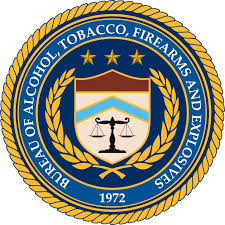 As of February 1, 2019, the Bureau of Alcohol, Tobacco, Firearms and Explosives (ATF) requires the use of a new address to submit various forms, particulary applications to register firearms regulated under the National Firearms Act (NFA), such as silencers, short barrel rifles, and machine guns. This change reflects a shift by ATF of its banking from Bank of America in Atlanta to U.S. Bank in Portland, Oregon.
As of February 1, 2019, the Bureau of Alcohol, Tobacco, Firearms and Explosives (ATF) requires the use of a new address to submit various forms, particulary applications to register firearms regulated under the National Firearms Act (NFA), such as silencers, short barrel rifles, and machine guns. This change reflects a shift by ATF of its banking from Bank of America in Atlanta to U.S. Bank in Portland, Oregon.
The instructions in the below forms have been updated to reflect the new mailing addresses:
Form 1 (5320.1) – Application to Make and Register a Firearm
Form 4 (5320.4) – Application for Tax paid Transfer and Registration of a Firearm
Form 7 (5310.12) / 7 CR (5310.16) – Application for Federal Firearms License
Form 8 (5310.11) – Federal Firearms Licensee Renewal Application
Form 5400.13/16 – Application for Explosives License or Permit
Form 4587 – Application to Register as an Importer of U.S. Munitions Import List Articles
Form 5630.7 – Special Tax Registration and Return National Firearms Act (NFA)
The new mailing addresses for these applications are as follows:
Firearms & Explosives Imports Branch (ATF Form 4587)
P.O. Box 6200-17
Portland, OR 97228-6200
Federal Explosives Licensing Center (ATF Form 5400.13/16)
P.O. Box 6200-18
Portland, OR 97228-6200
National Firearms Act Division (ATF Forms 1 and 4)
P.O. Box 5015
Portland, OR 97208-5015
Federal Firearms Licensing Center (ATF Forms 7 and 8)
P.O. Box 6200-20
Portland, OR 97228-6200
Special Occupational Tax (SOT) – NFA (ATF Form 5630.7)
P.O. Box 6200-13
Portland, OR 97228-6200
Commencing February 1, forms sent to the Bank of America address in Atlanta will be forwarded for the next 90 days, otherwise such mail will be returned to sender.
As always, we recommend downloading these forms from the ATF website to ensure the applicant uses the latest version.
 Arsenal Attorneys serves clients in the area of firearms law. The firms serves clients across America from its headquarters in the metro-Washington, DC area. The firm is particulalry renowned for its Arsenal Gun Trust, a solution helping clients clients in the registering, handling, and estate planning of firearms, particularly those regulated under the National Firearms Act. Arsenal Attorneys' team includes lawyers licensed to practice law in nearly every state where NFA firearms are lawful to possess.
Arsenal Attorneys serves clients in the area of firearms law. The firms serves clients across America from its headquarters in the metro-Washington, DC area. The firm is particulalry renowned for its Arsenal Gun Trust, a solution helping clients clients in the registering, handling, and estate planning of firearms, particularly those regulated under the National Firearms Act. Arsenal Attorneys' team includes lawyers licensed to practice law in nearly every state where NFA firearms are lawful to possess.
Silencers are legal in the following states: Alabama, Alaska, Arizona, Arkansas, Coloado, Connecticut, Florida, Georiga, Idaho, Indiana, Iowa, Kansas, Kentucky, Louisiana, Maine, Maryland, Michigan, Minnesota, Mississippi, Missouri, Montana, Nebraska, Nevada, New Hampshire, New Mexico, North Carolina, North Dakota, Ohio, Oklahoma, Oregon, Pennsylvania, South Carolina, South Dakota, Tennessee, Texas, Utah, Vermont, Virginia, Washington, West Virginia, Wisconsin, and Wyoming.
This information is provided for informational purposes only, and it is not legal advice, nor does it establish an attorney-client relationship.
Supreme Court's Next 2nd Amendment Case: Giant Leap or Small Step?
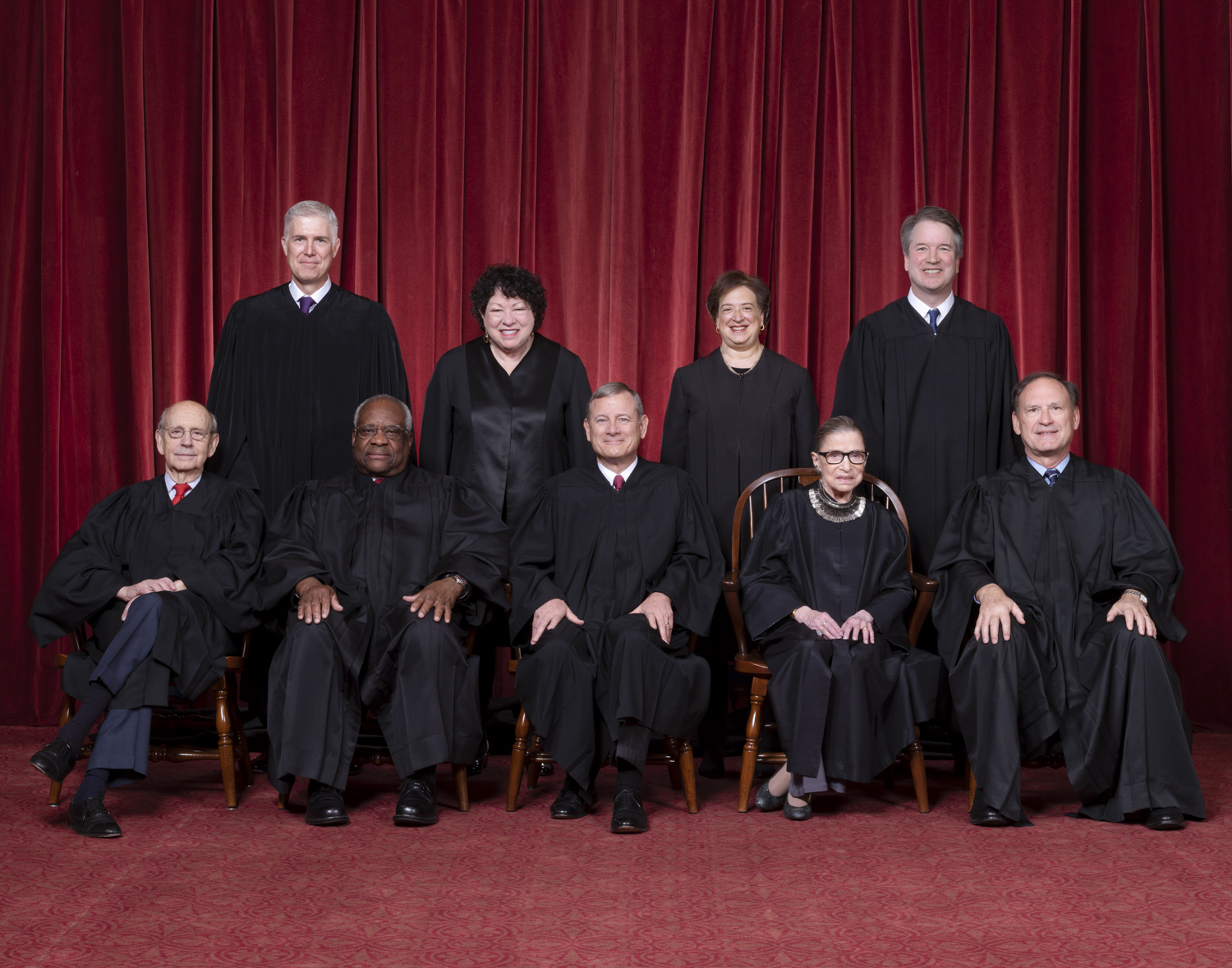
By George L. Lyon, Jr, Esq.
Arsenal Attorneys is closely monitoring developments at the United States Supreme Court, which recently agreed to review a case some are already celebrating as a seminal 2nd Amendment decision in the making. However, this case, New York State Rifle and Pistol Association, Inc. v. City of New York, NY, might not have as broad and immediate an impact as many have predicted.
This case is highly anticipated because it would be the next logical step in a long, gradual process to recognize the liberties guaranteed by the 2nd Amendment, and thereby lead to the reversal of presumably unconstitutional gun control laws in states like California, New York, Maryland, etc.
Second Amendment jurisprudence has been the late bloomer of US constitutional law. Since its creation in 1789, the Supreme Court did not issue significant 2nd Amendment opinions until the last dozen years. In the McDonald v. Chicago decision in 2010, the Supreme Court explicitly stated that the Second Amendment’s right to keep and hear arms was a fundamental right applicable to the states via the 14th Amendment to the Constitution. The Court thus applied nationwide its 2008 decision in District of Columbia v. Heller that the Second Amendment includes the right to possess a functional firearm, including a handgun, in the home. Since that time, other than a summary reversal of a Massachusetts case upholding a ban on possession of stun guns as inconsistent with the Heller decision, the Supreme Court has not heard a gun rights case.
During this time, lower federal courts have upheld a variety of gun related legislation, including restrictions on the issuance of permits to carry handguns outside the home, magazine limits, and limits on so-called assault weapons. Until last week, the Supreme Court has declined to review these lower court decisions giving short shrift to the Second Amendment. Justice Thomas, dissenting from the Court’s refusal to hear one case, suggested the Court was treating the Second Amendment right to keep and bear arms as a disfavored right.
It may very well take another case to make it clear to the lower courts
that Second Amendment rights are not second-class rights.
Last week, however, the Court accepted for full argument the aforementioned case, New York State Rifle and Pistol Association, Inc. v. City of New York, NY. It involves a challenge to a New York City ordinance which restricts the right of city residents having pistol premises permits to take their guns out of their city homes. The New York ordinance only allows premises pistol licensees to take their guns to one of seven New York City gun ranges. Residents cannot take their handguns to a second home or a gun range outside the city. No other jurisdiction in the country has such a restrictive law.
The mainstream media, noting the presence of Justice Brett Kavanaugh replacing the more moderate Justice Anthony Kennedy, has been quick to suggest that the Court may now be ready to dismantle various gun control provisions, such as ‘may issue’ concealed carry laws and assault weapons bans.
Nothing would make us happier at Arsenal Attorneys than a far-reaching, strongly worded decision striking down the nonsensical New York City law and setting a rigorous test for evaluating restrictions nationwide on firearms and other self-defense tools. We predict, however, a more modest result. While we believe the New York City law is doomed, the Court may very well decide the case on narrow grounds. Supreme Court doctrine holds that courts should avoid deciding a Constitutional issue if the Court can decide a case on statutory grounds. Such a statutory ground exists for the Court to decide this case. A portion of the Gun Control Act, 18 U.S.C. Section 926A, states as follows:
Notwithstanding any other provision of any law or any rule or regulation of a State or any political subdivision thereof, any person who is not otherwise prohibited by this chapter from transporting, shipping, or receiving a firearm shall be entitled to transport a firearm for any lawful purpose from any place where he may lawfully possess and carry such firearm to any other place where he may lawfully possess and carry such firearm if, during such transportation the firearm is unloaded, and neither the firearm nor any ammunition being transported is readily accessible or is directly accessible from the passenger compartment of such transporting vehicle: Provided, That in the case of a vehicle without a compartment separate from the driver’s compartment the firearm or ammunition shall be contained in a locked container other than the glove compartment or console.
The New York City ordinance would appear in direct conflict with Section 926A. As such, the Supreme Court could very well throw out the provision on this statutory basis and avoid deciding the case on Second Amendment grounds. Such a result might very well obtain the support of the Court’s more liberal Justices, Ginsburg, Breyer, Sotomayor, and Kagan, with a resulting 9-0 decision invalidating the law. Likely, one or more of the Court’s more conservative Justices, Thomas, Alito, Gorsuch and Kavanaugh might pen a concurrence decrying the lack of respect shown the Second Amendment by the bulk of the lower Federal courts. Otherwise, Chief Justice Roberts may be the deciding vote whether to take a narrow or expansive path in invalidating the New York City law.
It may very well take another case to make it clear to the lower courts that Second Amendment rights are not second-class rights. A gun carry case could serve this purpose well, such as Rogers v. Grewal from New Jersey and now at the Supreme Court awaiting a decision whether it will be heard by the Supreme Court. The attorney generals of 23 states just asked the Court to review this case. For now, the Supreme Court’s taking New York Rifle and Pistol Association is clearly a good start, but it is likely just another gradual step in ensuring that the lower courts respect the Second Amendment.
Arsenal Attorneys’ George Lyon is licensed to practice law in Virginia and the District of Columbia. He was one of the plaintiffs in the Palmer v. District of Columbia case that forced DC to begin issuing concealed carry licenses and in the Heller case that legalized handguns in Washington, DC. Mr. Lyon is licensed by the Metropolitan Police Department to teach the DC concealed carry course and conducts the course monthly. His next class is scheduled for February 23-24 in Arlington, Virginia. To sign up for his course, contact Mr. Lyon at gll[at]arsenalattorneys.com or at 703-291-3312. Arsenal Attorneys is looking for persons who have obtained their DC concealed carry licenses and who would be willing to participate in a civil rights case relating to DC’s myriad of concealed carry restrictions. Contact Mr. Lyon if you have an interest in learning more.
